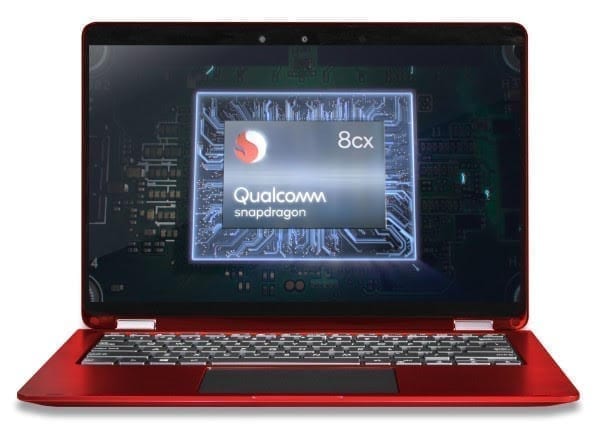The Changing CPU Landscape: for years now there have only been two real players in the ‘Personal Computing’ CPU space; Intel and AMD. But there is a competitor on the horizon that might just change everything…
ARM
In 2019 we will see the new Qualcomm 8CX SOC arrive on the scene, which is already comparable to an Intel i7 8565U and the AMD R7 3700U when running native RISC code. The 8CX even supports Vulkan and DirectX 12, on dual 4K displays, built right into the chip. And it does all this at 7 watts! This means battery life that can be measured in days, as well as offering greater margins for manufacturers.
Some of these ARM-based gains can already be seen in the new Apple iPad Pro. The A12X “Bionic” is, you guessed it, ARM. And it’s actually faster than the i7 equipped MacBook Pro when running native RISC code. All while offering power consumption and thermals that work in a tablet…
And Qualcomm hasn’t been shy about advertising their partnership with Microsoft to bring the Windows software biome to RISC computing as well.
So, what does this mean for Software QA?
In the changing CPU landscape there will be a gradual shift of traditional desktop applications from CISC-based code to RISC-based code. This will be in order to tap the new market potentials of ARM-based SOC systems. Systems like laptops and tablets and point-of-sale machines and office tools. And even super efficient data center hardware.
And transitioning existing code from one instruction set to another brings certain technical challenges. Challenges beyond the compiler that will need to be found, documented, and fixed.
Good quality assurance will be instrumental in making a smooth transition to these new platforms while maintaining the trust of an established user base. And a knowledgeable software QA company, such as iBeta, can ensure your users aren’t paying to find issues with your application on new platforms.
